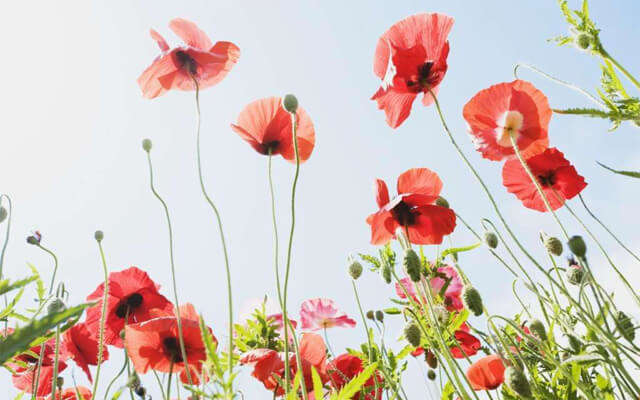Chinese Vocabulary about Plants
Posted by Julia Song 4187

Plants to mother earth are like oxygen to human beings. Without oxygen, people can’t live; without plants, the Earth would gradually come to the end. By learning vocabulary about plants, your Mandarin will become to a forest instead of a desert.
huā
“花” --- Flowers
There are thousands of kinds of flowers in the world, and each country has its own national flower. Do you know how to say your national flower in Chinese? Find your answer below!
| mǔ dān huā zhōng guó 牡 丹 花 --- Peony flower (中 国: China- to be confirmed) | mù jǐn huā hán guó 木 槿 花 ---Hibiscus flowers (韩 国: Korea) |
| yīng huā rì běn 樱 花 ---Sakura (日 本: Japan) | jī dàn huā lǎo wō 鸡 蛋 花---Plumeria rubra (老 挝: Laos) |
| méi guī huā měi guó 玫 瑰 花 --- Rosa rugosa (美 国: The United States) | yuè jì huā yīng guó 月 季 花 --- Rosa chinensis (英 国: The United Kingdom) |
| shí liú huā xī bān yá 石 榴 花 --- Pomegranate flower (西 班 牙: Spain) | xiàng rì kuí é luó sī 向 日 葵 --- Helianthus (俄 罗 斯: Russia) |
| chú jú huā yì dà lì 雏 菊 花---Bellis perennis (意 大 利: Italy) | yuān wěi huā fǎ guó 鸢 尾 花---Flower-de-luce(法 国: France) |
e.g.:
zhōng guó de guó huā shì mǔ dān huā。
中国的国花是牡丹花。
(Peony flower is the national flower of China.)
cǎo
草 ---Grass
cǎo dì
草 地: Lawn
tā men zhèng tǎng zài cǎo dì shàng shài tài yáng。
他们正躺在草地上晒太阳。
(They lie in the lawn and bask in the sun.)
cǎo cóng
草 丛: Tussock
tù zǐ duǒ zài le nà piàn cǎo cóng zhōng。
兔子躲在了那片草丛中。
(The rabbit was hiding in that tussock.)
The grass stands for the indomitable vitality as it can survive even under the poorest environment. There has a poem which praise the grass but without mentioned the word ‘草’:
yě huǒ shāo bú jìn , chūn fēng chuī yòu shēng。
野火烧不尽,春风吹又生。
(No prairie fire can destroy the grass; it shoots up again with the spring breeze blows.)
shù
树 ---Tree
| shù mù 树 木: Trees | shù gēn 树 根: Root |
| shù gàn 树 干: Trunk | shù zhī 树 枝: Branch |
| shù yè 树 叶: Leaves | shù lín 树 林: Woods |
yī gēn shù de zhǔ yào sì bù fèn shì shù gēn 、shù gàn 、shù zhī 、shù yè。
一根树的主要四部分是树根、树干、树枝、树叶。
(A tree is mainly consisting of roots, trunk, branch, and leaves.)
Also, when you hanging out on a park in China, you can see many of the signboards stand on the lawn such as:
xiǎo cǎo yǒu qíng ,jiǎo xià liú qīng。
小草有情,脚下留青。
yì cǎo yì mù yì fēng jǐng ,yì yán yì xíng yì wén míng。
一草一木一风景,一言一行一文明。
Can you understand the rhyme and meaning of these two slogans? Click here to book a free trial lesson and you'll get the answer!










